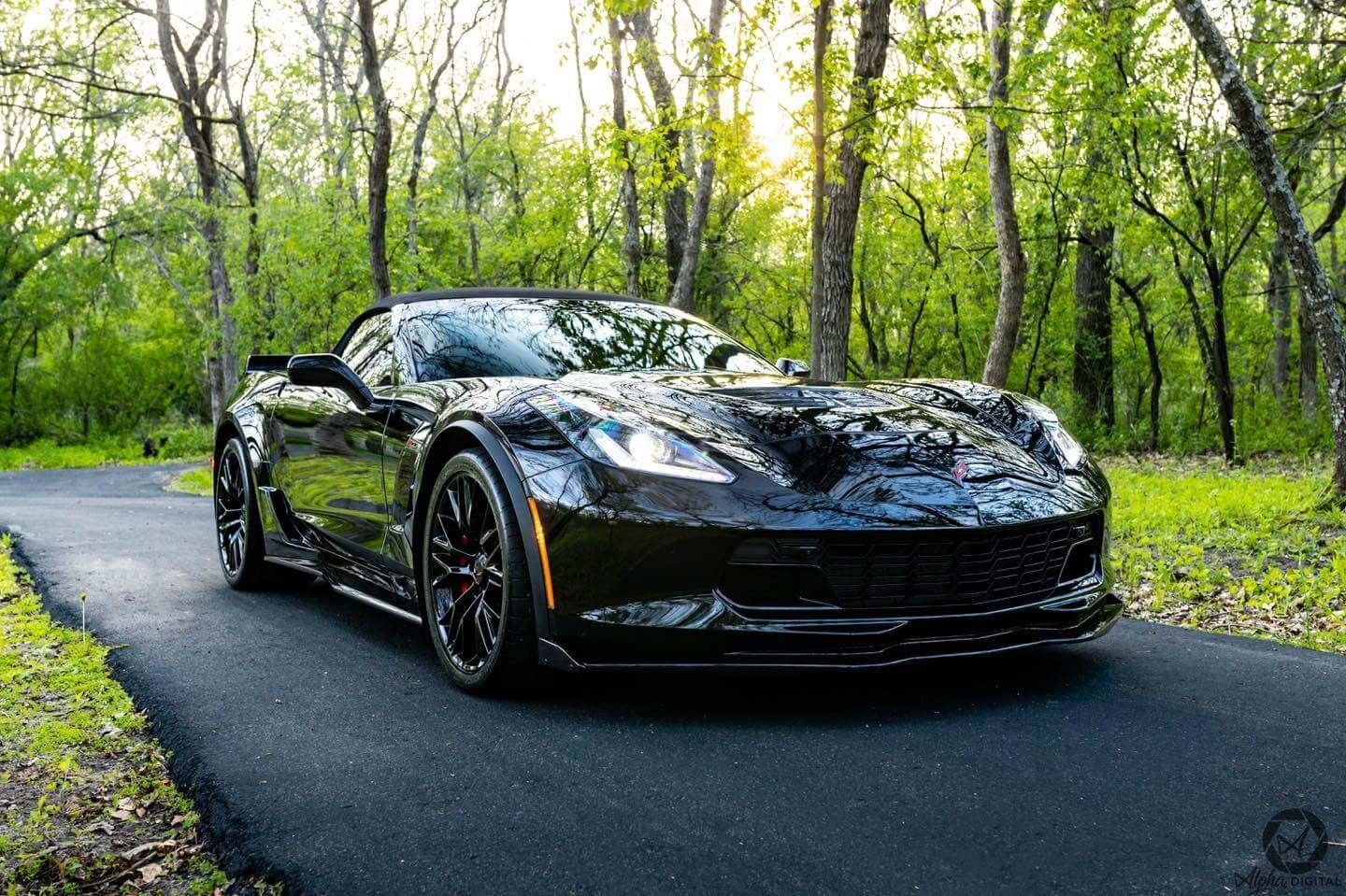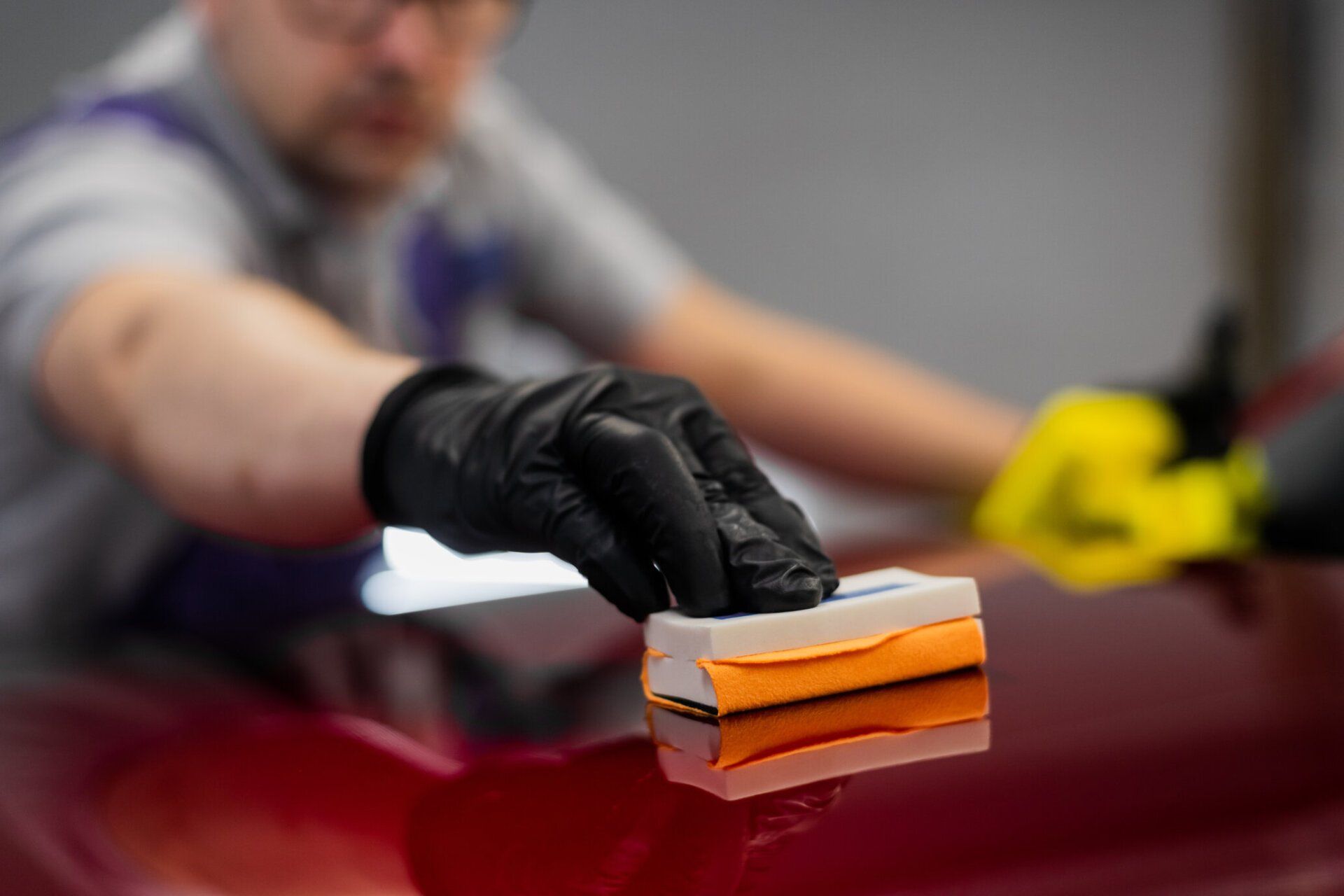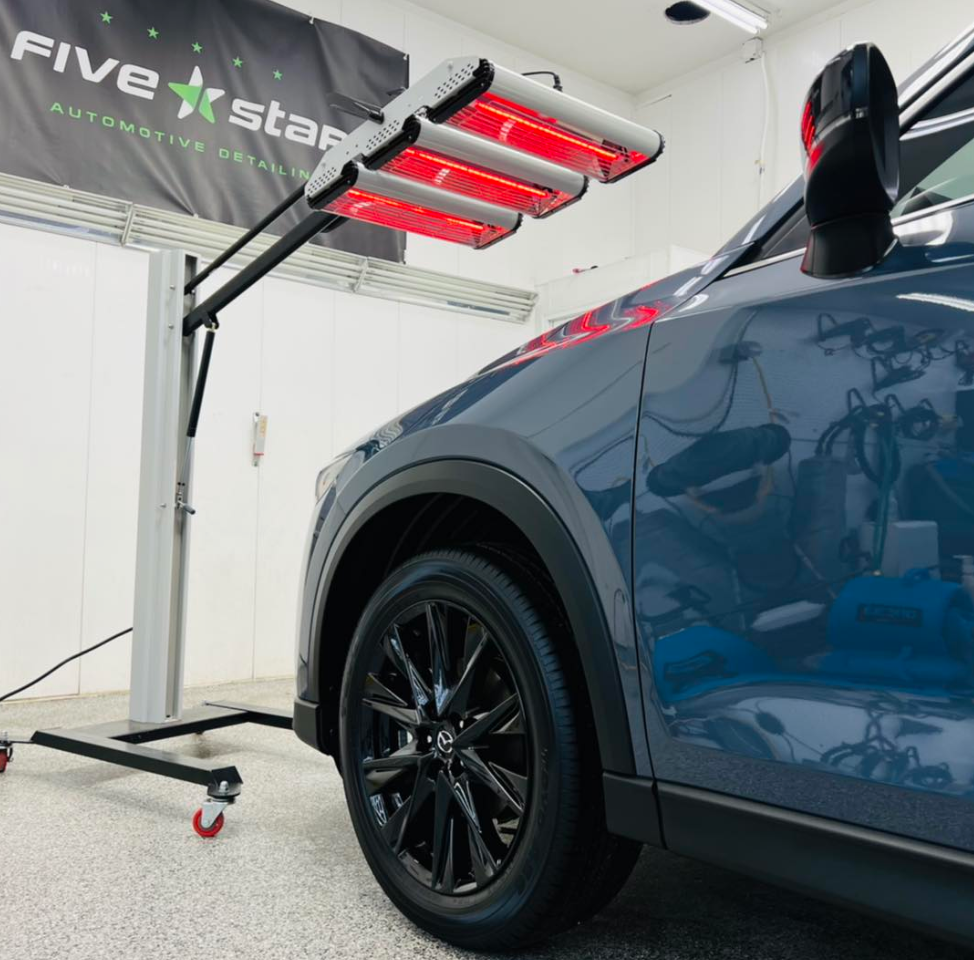Professional Window Tinting vs. DIY: Why Hiring Experts is Worth the Investment?
BOOK NOWChoosing professional window tinting services over a DIY option delivers superior quality and peace of mind. These experts bring trained skills, specialized tools, and detailed knowledge to ensure the tinting job is done properly and meets your exact needs. Interestingly, many professionals also offer warranties on their work. This warranty could mean any issues that arise from the tinting job are fixed for free by these professionals. A warranty from a tint shop can be a game-changer. Let’s discover the differences between professional window tinting and DIY.
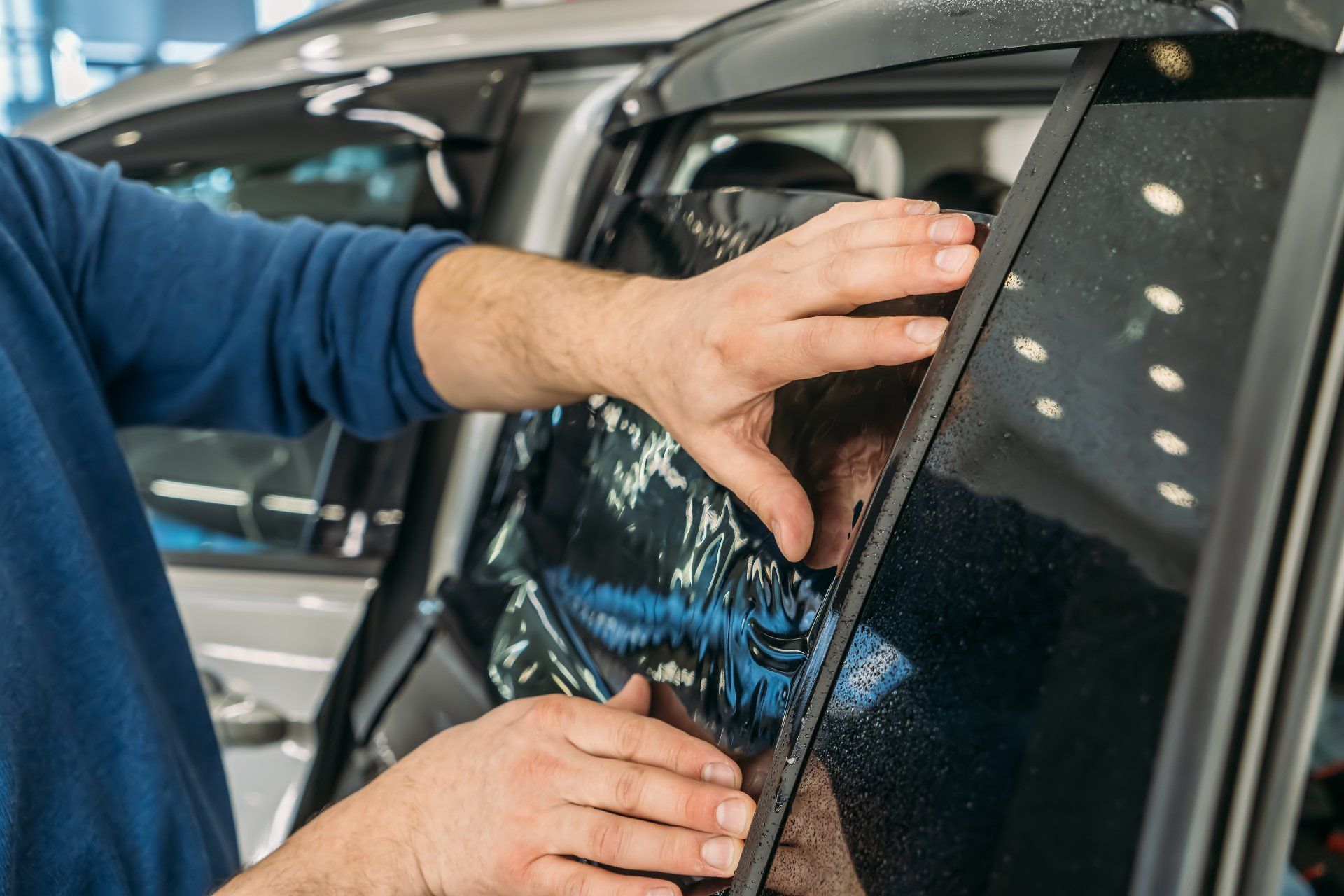
Differences Between Professional Window Tinting and DIY Tinting
Window tinting is an increasingly popular way to improve the aesthetics, privacy and sun protection of vehicles. Deciding between professional window tinting services and DIY tinting methods is crucial; let's examine their key distinctions below:
1. Quality of Materials: For professional tinting services, high-grade films with advanced technologies are used, guaranteeing their durability and optimal performance. With DIY kits available today, however, film quality may differ significantly, and results could depend on which brand and type are chosen.
2. Expertise in Installation: Trained technicians have the skill and experience necessary for producing flawless installations with the minimum risk of bubbles, creases or an uneven tint. Window tinting requires precision application, whereas amateurs may struggle with its application, leading to visible imperfections in its application.
3. Customization Option: Professional Tinting offers numerous tint shades and hues that allow for customization to meet individual preferences or legal requirements. DIY tinting typically has limited choices of hues available and may make creating specific looks challenging without professional experience.
4. Warranties: Professional window tinting services generally come with warranties and guarantees to ensure long-term performance and provide peace of mind for clients. But for DIY applications, warranties may differ depending on how precise the installer was during the application.
5. Time and Effort: Pro Tinting offers efficient and speedy installation services to reduce downtime for your vehicle. Do-it-yourself window tinting takes more time, with its own learning curve, potential mistakes, and possible rework in case they arise.
6. Legal Compliance: Professional window tinting technicians have the expertise needed to comply with local regulations, ensuring their tint meets legal limits and avoiding fines or having to redo their tint job. DIYers may struggle with adhering to legal tint limits and face fines or have to redo it altogether.
Ultimately, selecting professional window tinting or DIY kits depends on your priorities and personal budget. DIY kits may offer budget-conscious individuals more control; professional tinting ensures superior finish quality, durability and compliance with legal standards for greater peace of mind and seamless execution of tinting projects. For an effortless tinting experience, leave it in professional hands for hassle-free execution!
Advantages of Hiring a Professional for Window Tinting
When it comes to window tinting, there's certainly a compelling case for leaving it in the hands of experts. Professional window tinting services offer several benefits that you simply can't get from a DIY approach. Let's delve into some of these advantages:
Expertise and Precision
Window tinting is more than just a cosmetic enhancement; it requires precision and expertise for a seamless and effective installation. Professional window tinting technicians are trained and experienced in the application process. They're well-versed in the nuances of different types of window film and how to best apply them to achieve optimal results. This level of expertise ensures that you'll have a smooth, bubble-free finish without any imperfections that could impact the durability and performance of the tint.
Quality Materials and Installation
In addition to their expertise, professional window tinting services use high-quality materials, offering an array of options in terms of shading, UV protection, and heat rejection. This means you can choose from various tints that suit your specific needs, whether it's privacy, safety, or glare reduction. Moreover, professionals ensure that the installation process is meticulous and employs industry-standard techniques for maximum efficiency.
One crucial aspect where professionals shine is their focus on ensuring that the tint material is applied uniformly across all windows. Without professional insight, achieving this level of evenness can be highly challenging. Amateur applications often result in visible lines, bubbles, or creases in the film, which detract from the sleek appearance and functionality of the tint.
Such attention to detail is often what separates professional results from amateur attempts. Plus, engaging professionals saves time and hassle while delivering exceptional long-term value.
Warranty Coverage
Most reputable professional window tinting services provide warranties to guarantee customer satisfaction. This warranty typically covers any issues with the tint, such as peeling, discoloration, or bubbling. Having this coverage means that should any problems arise post-installation, you can count on getting them rectified at no extra cost.
These advantages make a compelling case for putting your trust in professional window tinting services. Their precision, expertise, quality materials, and warranty coverage offer peace of mind, ensuring that your investment in window tinting pays off with lasting quality and performance.
High-Quality Materials and Results Delivered
When you hire experts to tint your windows, you're accessing materials specially crafted for the job. These materials are specifically engineered to combat UV exposure, reduce glare, and withstand color fading over time. This is a big deal because high-quality films ensure that your investment lasts longer.
High-quality window films contain special additives designed to block harmful UV rays from entering your vehicle. By doing so, they protect your interior fabrics and trims from fading, ultimately prolonging the life of your car's interior.
It's like
applying sunscreen on a hot summer day.
Professional Expertise in Window Tinting
When it comes to getting your windows tinted, you want them to look great and do their job well. This requires a good understanding of what type of film will work best for you and ensuring everything is legal in your area.
Window Film Types
Professionals don't just slap any old tint onto your windows. They carefully consider factors like the level of UV protection you need, how much heat reduction you want, and whether privacy is a priority.
For example, if your concerns primarily involve protecting your furniture from fading due to sunlight exposure, professionals can recommend a specialized film designed to block out harmful UV rays. On the other hand, if you're more focused on maintaining a comfortable indoor temperature during hot summer months, they can suggest a film with better heat reduction properties. And if privacy is paramount for you, there are films specifically engineered to offer this without sacrificing aesthetics or natural light.
By consulting with experts, you're not only guaranteed the optimal level of performance from your tint but can rest assured that it's tailored to your specific needs.
Legal Compliance
But expert knowledge isn't just about what looks good—it also involves obeying the rules. Different places have different regulations concerning window tint, darkness and reflective qualities.
Professionals know these rules like the back of their hands. They ensure that your chosen tint falls within the legal limits, sparing you from potential fines or the hassle of having to remove and replace non-compliant tints. By relying on their expertise, you sidestep the headache of dealing with legality issues down the road.
So when it comes down to choosing window film types and ensuring legal compliance for your window tinting project, professional expertise is worth its weight in gold—bringing peace of mind along with beautifully tinted windows that adhere to local regulations and meet your specific needs.
Expertise matters greatly when it comes to window tinting; now let's uncover the intricate steps that define the correct installation process.
The Correct Installation Process
When you entrust your window tinting to professionals, they prioritize meticulous surface preparation. They start by thoroughly cleaning the windows with specialized techniques to ensure a completely smooth and clean surface. This step is crucial as it prevents any imperfections, dirt, or air bubbles from being trapped underneath the film.
One of the most common concerns with DIY window tinting is the presence of unsightly air bubbles and creases that can compromise the appearance and effectiveness of the tint. However, professional installers are well-equipped with the expertise and tools necessary to prevent such flaws. They have honed their skills to apply the film precisely and evenly, leaving no room for creases or wrinkles. This precise application ensures that your windows have a sleek and uniform finish without any imperfections.
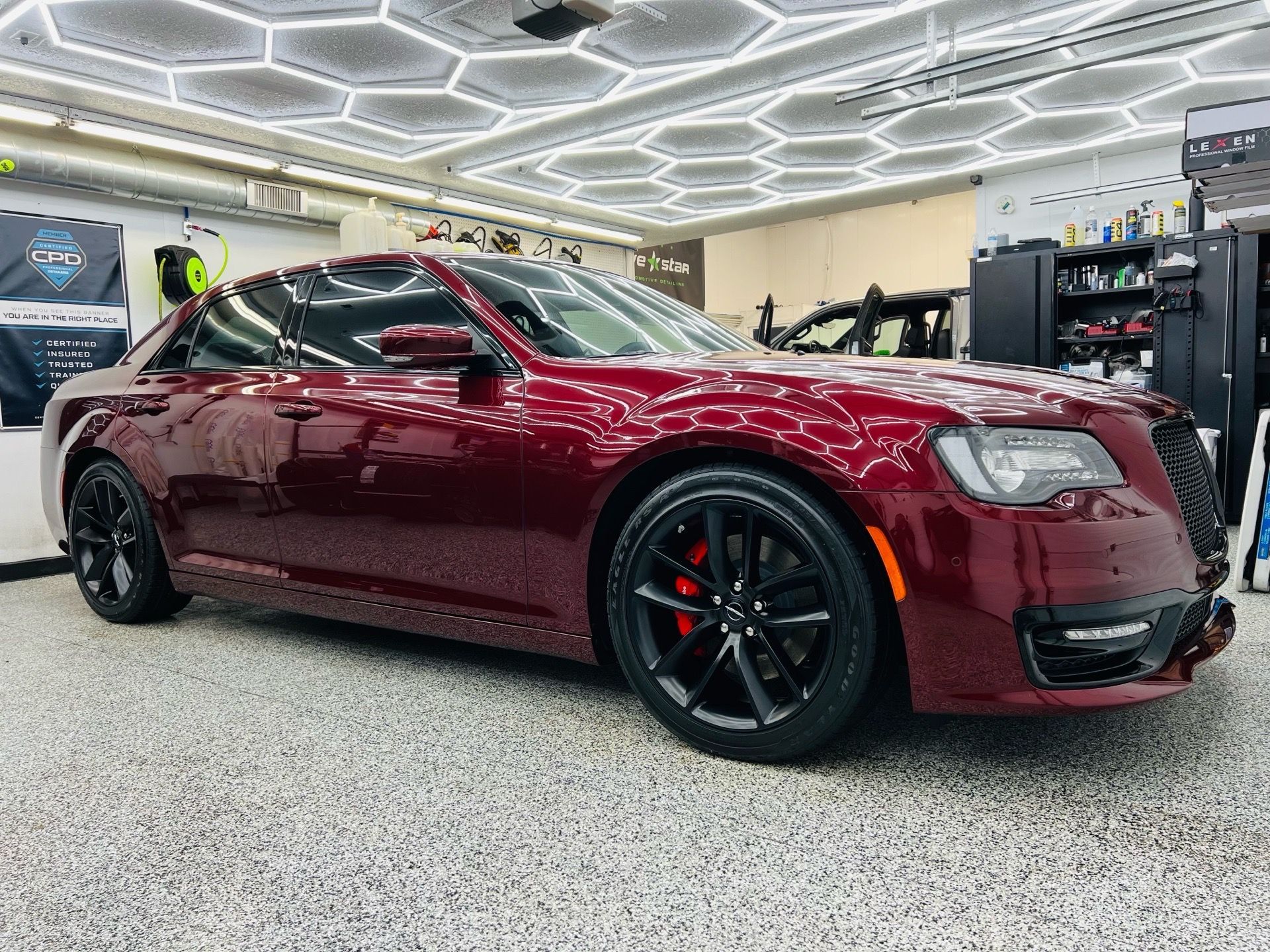
Comparing Costs: DIY vs. Professional Tinting
Cost is often a primary concern when it comes to getting your windows tinted. At first glance, DIY kits may seem more budget-friendly than professional services. After all, you're just buying materials as opposed to paying for labor and expertise. But does saving a few bucks in the short term outweigh the potential pitfalls down the road?
When you opt for a DIY approach, you're responsible for the entire installation process. This means you need to invest time and effort into properly applying the tint, and even then, there's a possibility of things not going as planned. Many DIY kits come with low-quality tint material and may not provide adequate UV protection or durability, meaning you might end up needing to replace or redo the job earlier than expected.
Additionally, when you commit to a DIY project, handling materials like window film requires a meticulous touch, which many individuals might not possess. Mishandling the film during installation can result in wrinkles, bubbles, or improper alignment that impacts both aesthetics and effectiveness.
On the other hand, professional tinting services guarantee high-quality materials and expert application, resulting in seamless, bubble-free window tint. The overall aesthetic appeal and functionality provided by professional services can far outweigh any initial cost difference.
In terms of long-term value, professional window tinting offers several advantages that DIY projects don't:
- High-quality materials: Professional-grade films come with better UV protection and durability.
- Expertise: Professional installers have the experience and skills needed for a flawless application.
- Warranty coverage: Most professional installations come with warranties that can save you money in case of damage or defects.
So while DIY kits may seem like a more cost-effective option at first glance, it's important to consider the long-term value professional tinting provides through high-quality materials, expertise, and warranty coverage. Remember that investing in professional services ensures a job well done that will stand the test of time.
Common Pitfalls of DIY Window Tinting
While YouTube tutorials make DIY projects seem easy and fun, window tinting is not a project to take lightly. It's easy to underestimate the complexity and precision required for the task. Here are some common pitfalls you may encounter if you decide to take the DIY route:
Legal Compliance
Embarking on a DIY window tinting project without understanding local regulations can lead to violations of tint levels that vary from state to state. This can result in legal penalties or even citations from law enforcement.
Attempting a DIY window tinting project without comprehensive knowledge of local laws could inadvertently lead to legal issues. Each state has its own laws regarding permissible visible light transmission (VLT) for vehicle windows. For instance, Minnesota allows up to 50% VLT on all windows behind the driver, while it permits any VLT on the rear window. Adhering to these rules is crucial to avoid fines or even having to remove the tint entirely.
Quality Control
Another noteworthy concern with DIY window tinting is the lack of quality control. Achieving a flawless and professional-grade tint job requires precision and expertise. Inexperience could lead to imperfect installations with creases, air bubbles, or uneven tint application, which would detract from both the aesthetics and functionality of the tint.
Picture this: After spending hours meticulously applying the film, you notice unsightly air bubbles trapped underneath. It's a frustrating scenario that often arises when undertaking a task as intricate as window tinting without professional guidance.
Aesthetics and Longevity
In addition to practical implications, poorly executed DIY tints can compromise your car's appearance and diminish the longevity of the film itself. Inferior results might not only clash with your vehicle's aesthetics but may also necessitate premature replacement due to peeling or discoloration.
These pitfalls highlight the intricate nature of window tinting, which requires professional skill and expertise for optimal outcomes.
Final Words
As we compare professional window tinting to DIY applications, it becomes apparent that our choice is determined by more than just cost savings alone. While DIY window tinting applications may offer cost savings for budget-minded consumers, they usually lack the precision, durability, and expertise of professional window tinting services.
Five Star Automotive Detailing offers professional window tinting services to ensure a flawless finish and optimal performance of the tinting on your vehicle. Our skilled technicians utilize top-of-the-line materials and techniques, customizing each tinting job according to individual customer needs.
At Five Star Automotive Detailing, we understand the significance of precision and perfection. Reach out today and experience our superior-quality window tinting that transforms your windows into masterpieces of style, comfort, and efficiency—make Five Star Automotive Detailing your first choice when tinting them!


